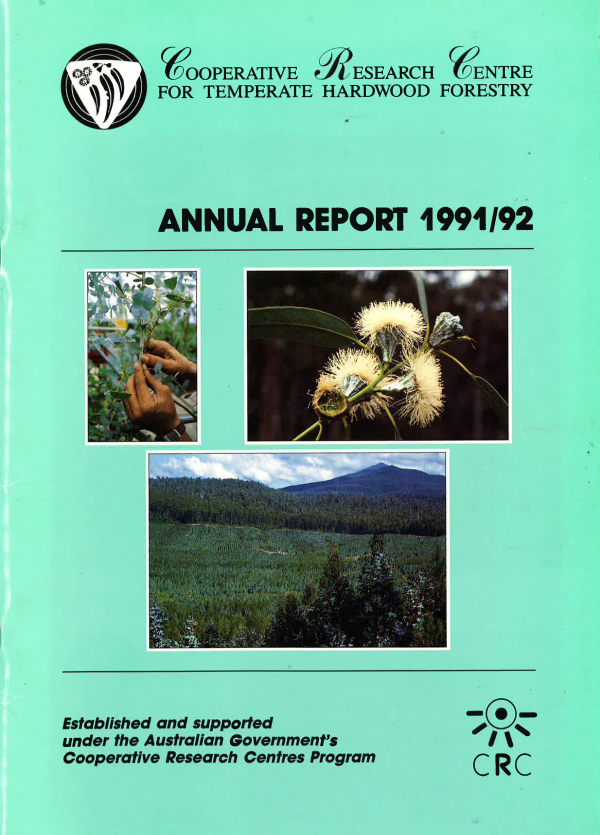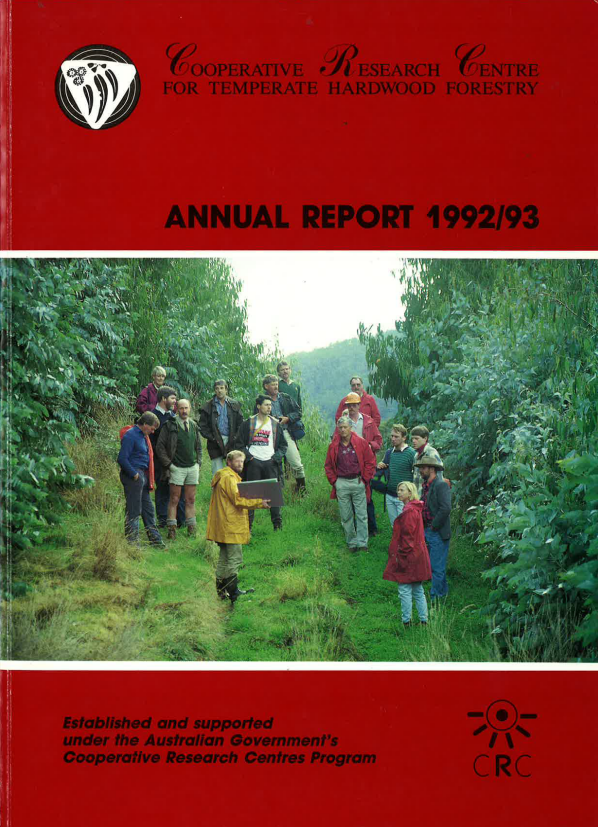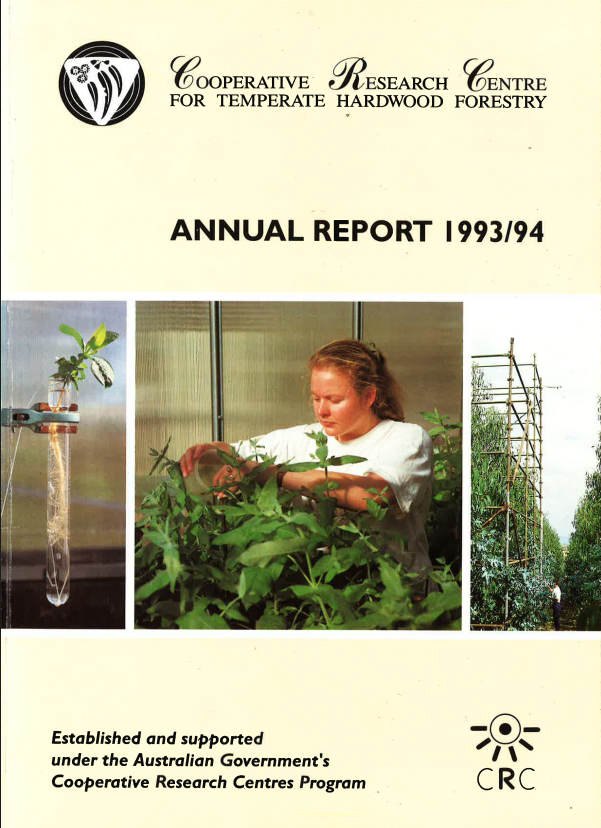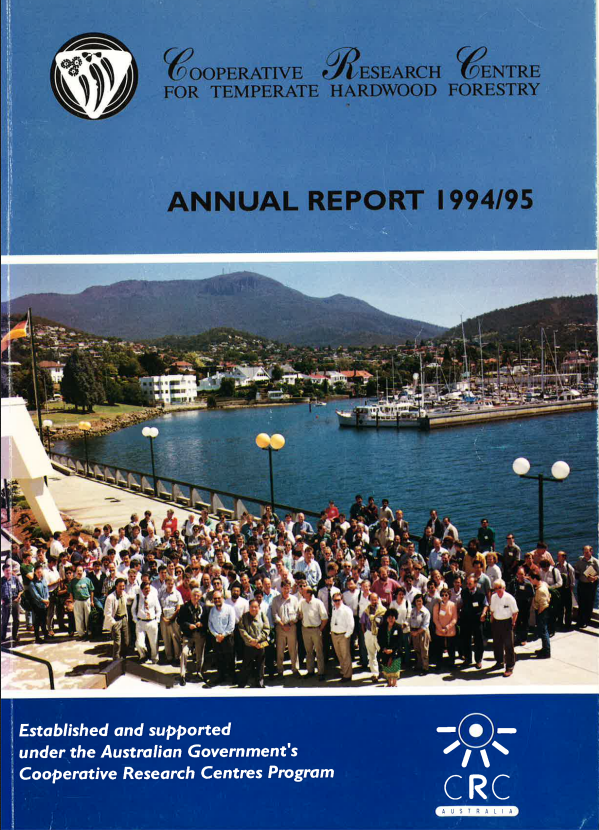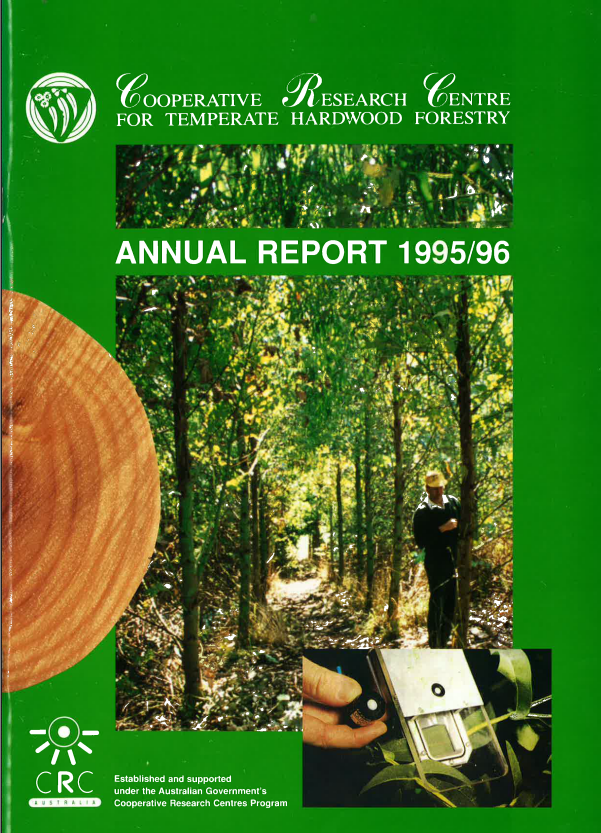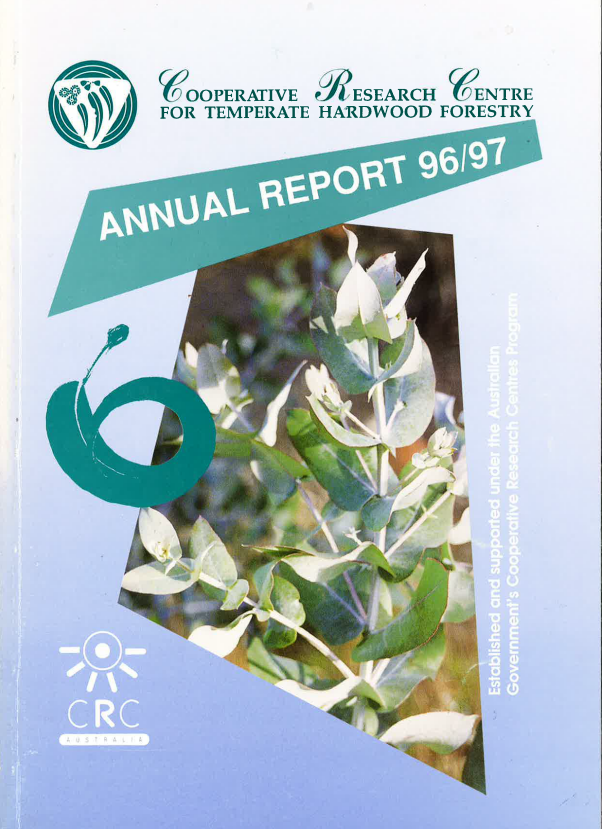Objectives
The general objectives of the Centre were:
- to undertake high-quality scientific and technological research which contributes to national forestry objectives, including economic and social development of an internationally competitive industry sector
- to ensure that industry captures the benefits of research and to strengthen the links between research and its commercial and other applications by the active involvement of the industrial participants in the work of the Centre
- to develop a centre of forestry research by promoting cooperative research and through it a more efficient use of resources
- to provide relevant education and training, particularly in graduate programs, through the involvement of researchers from outside the higher education system in educational activities and by involving graduate students in major research programs
- to operate effectively and efficiently according to international standards and under sound financial control
- to ensure staff are well motivated, appropriately motivated and work safely
The Centre aimed to become a national centre for developing and promoting innovation in hard-wood forestry by:
- developing forest management systems to increase wood productivity in temperate hardwood forests in an environmentally sustainable and responsible way
- improving the quality of wood from hardwood forests to ensure its market suitability for efficient, value added processing
- gaining a competitive advantage for Australia's forestry sector over other hardwood producing countries
- developing a national centre for excellence for postgraduate training with emphasis on training graduates relevant to the training sector
Genetic Improvement Program
Program Manager: Prof Jim Reid
Project Leaders: Dr Nuno Borralho, Ms Claire Raymond, Dr René Vaillancourt, Dr Brad Potts, Mr V Hartney, Prof Jim Reid
This program aimed to achieve gains in plantation productivity by improving the genotypes of planting stock. This requires two major research thrusts. Firstly, the genetic resources available must be identified, reliable estimates of relevant genetics parameters determined and these used to develop efficient breeding strategies. Secondly, once genetically superior material has been identified, it must be transferred to plantations as quickly as possible either by seed or by vegetative propagation. These two needs form the basis of the two sub-programs of this Program, Genetic Resources and Propagation Strategies.
Soil and Stand Management Program
Program Manager: Dr P West
Project Leaders: Dr C Beadle, Mr R Cromer, Dr P Smethurst, Dr Peter Sands
This program examined forest growth and yield in relation to environmental factors, particularly temperature, the availability of water and nutrients and soil physical properties.
Through understanding these processes, it aims to develop a complete description of the plantation ecosystem and develop a complete description of the plantation ecosystem and develop silvicultural tools for the forest grower to maximise wood yield at a minimum environmental impact.
Resource Protection Program
Program Manager: Dr J Madden
Project Leaders: Dr J Madden, Dr A Clarke, Dr H Elliott, Prof M Stoddart
Projects within the program endeavoured to more fully understand the biology, behaviour and ecology of major insect and vertebrate pests of plantation eucalypts and develop appropriate strategies for their control. Research is conducted within the parameters of integrated pest management and involves biological control, cultural practices, pesticide evaluation, host tree selection behaviour and the genetics of host tree tolerance/resistance to pest attack.
Education and Communication Program
Program Manager: Niel Davidson
The main aims of the Education and Communication Program were to:
- expand postgraduate and postdoctoral research in the areas of tree genetics, forest protection (against predation by insects and vertebrates) and management of plantation eucalypts
- involve CRC scientists, who are not teaching staff in University departments, in supervision at the postgraduate level and in teaching in undergraduate courses
- communicate the results of research conducted at the Centre to the industrial partners, to other scientists within the CRC and to the public, through the production of reports, workshops, seminars, and field days
- raise public awareness of the objectives of the CRC and the high quality of the research conducted by it through open days and public displays
- generate a CRC ethos amongst members of different departments and institutions on the campus at the University of Tasmania
Total centre outputs
The staff and students of the CRC for temperate hardwood forestry were involved in numerous publications, presentations and reports over the lifespan of the centre. A list of the total outputs of the centre is available in both EXCEL and EndNote formats.
EXCEL version Temperate hardwood forestry output (XLSX, 81KB)
EndNote version Temperate hardwood forestry output (ZIP, 153KB)
Annual reports
| Name & Position Title | |
|---|---|
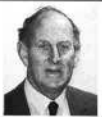 | Mr John Allwright AO Chairman, CRC for Temperate Hardwood Forestry 1991-1993 |
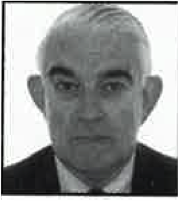
| Mr John Kerin Chairman, CRC for Temperate Hardwood Forestry 1993-1997 |
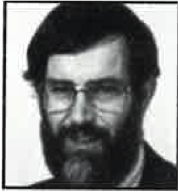 | Professor Jim Reid Director, CRC for Temperate Hardwood Forestry 1991-1997 |
 | Dr Phil West Deputy Director, CRC for Temperate Hardwood Forestry 1991-1995 |
 | Dr David de Little Deputy Director, CRC for Temperate Hardwood Forestry 1995-1997 |
 | Professor Pip Hamilton Board member, CRC for Temperate Hardwood Forestry 1991-1997 |
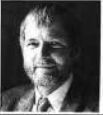 | Mr Ken Felton Board member, CRC for Temperate Hardwood Forestry 1991-1997 |
 | Mr Ian Whyte Board member, CRC for Temperate Hardwood Forestry 1991-1993 |
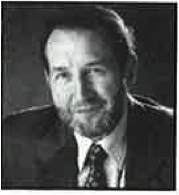 | Dr Glen Kile Board member, CRC for Temperate Hardwood Forestry 1991-1997 |
 | Mr Steve Balcombe Board member, CRC for Temperate Hardwood Forestry 1991-1992 |
 | Mr Des King Board member, CRC for Temperate Hardwood Forestry 1991-1992 |
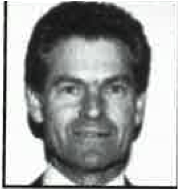 | Mr John Cameron Board member, CRC for Temperate Hardwood Forestry 1992-1997 |
 | Mr Neil Humphreys Board member, CRC for Temperate Hardwood Forestry 1992-1997 |
 | Mr Ross Waining Board member, CRC for Temperate Hardwood Forestry 1992-1997 |
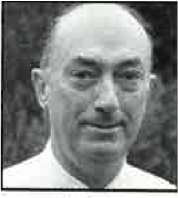 | Mr Allan Jamieson Board member, CRC for Temperate Hardwood Forestry 1993-1997 |
 | Mr Geoff McArthur Board member, CRC for Temperate Hardwood Forestry 1995-1997 |
CRC for Temperate Hardwood Forestry Partners
Core Partners
- Australian Newsprint Mills
- Amcor Plantations
- Boral Timber Forest Resources
- Bunnings Treefarms
- CSIRO Australia
- Forestry Tasmania
- North Forest Products
- University of Tasmania
